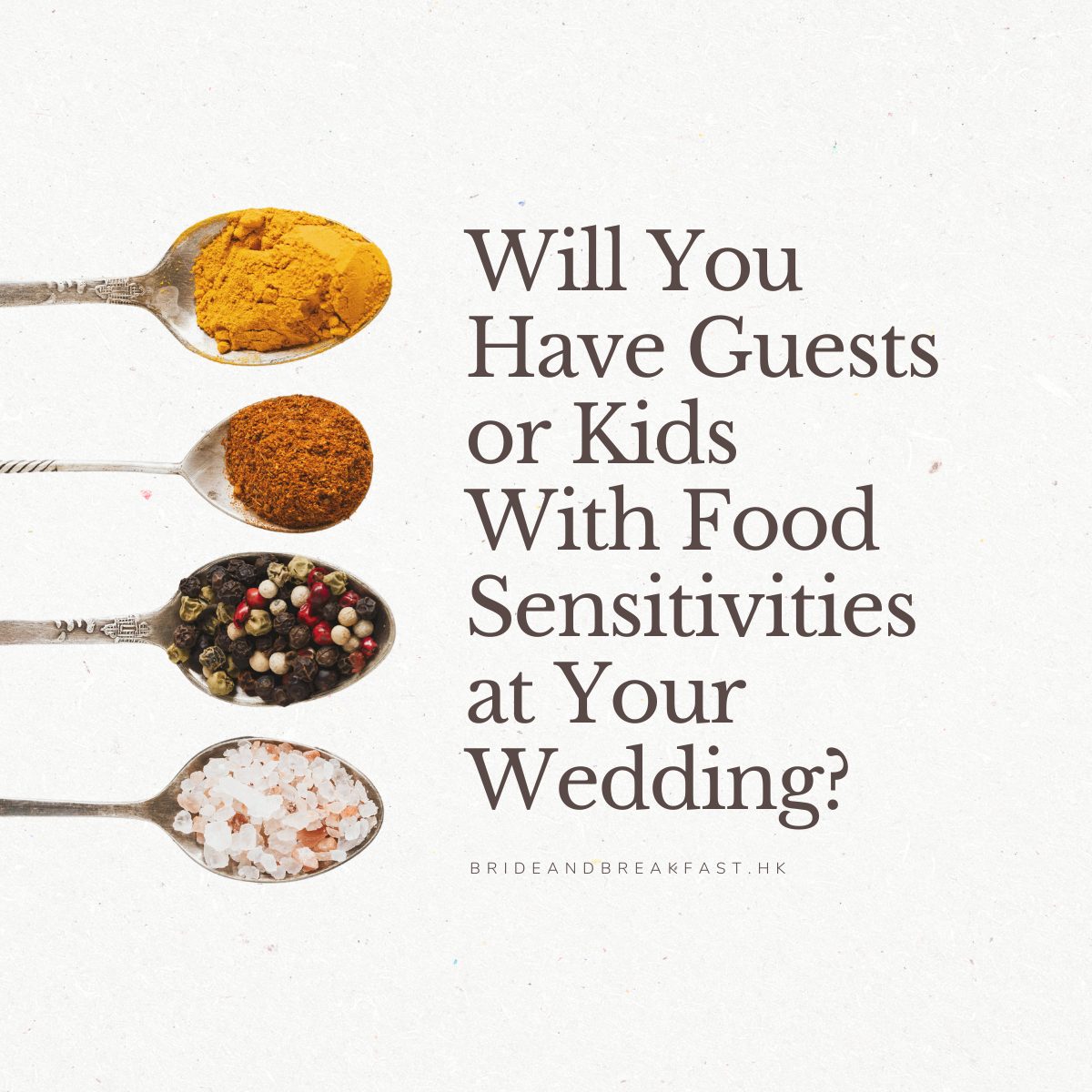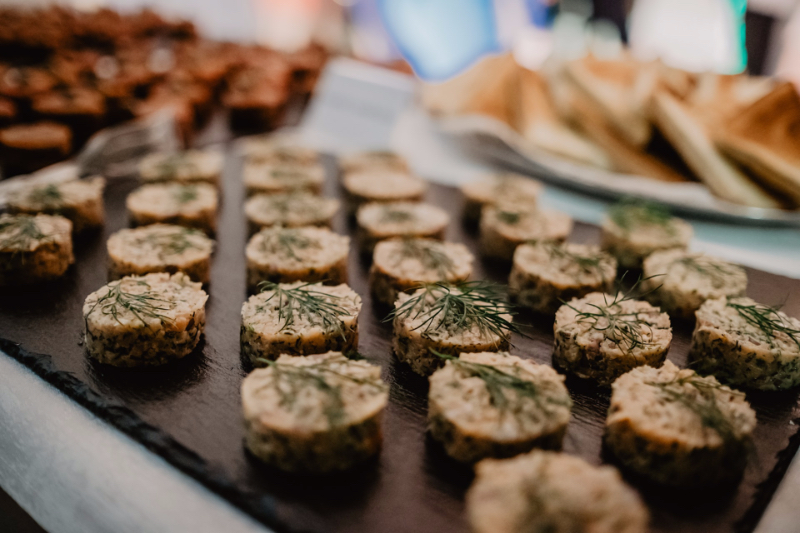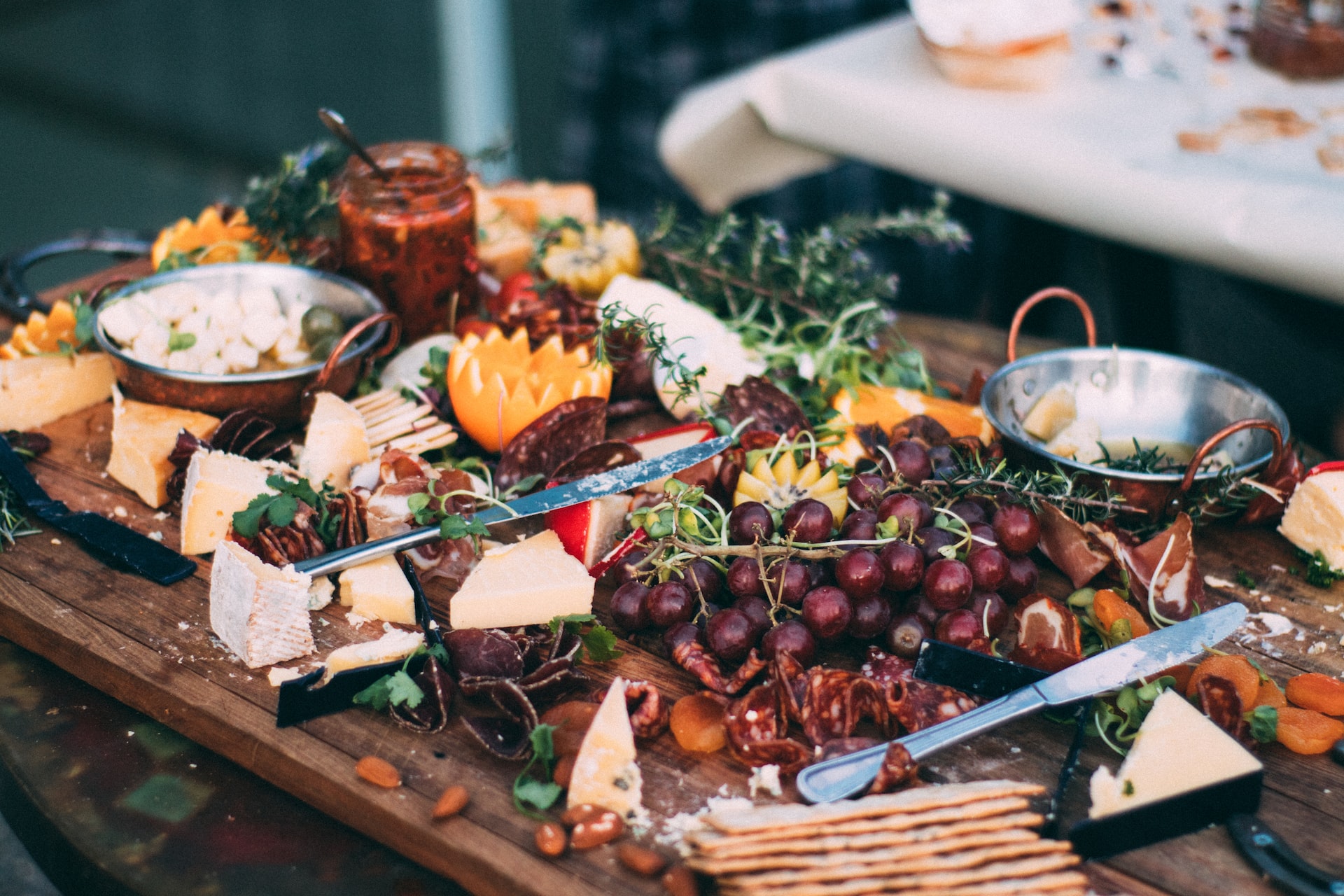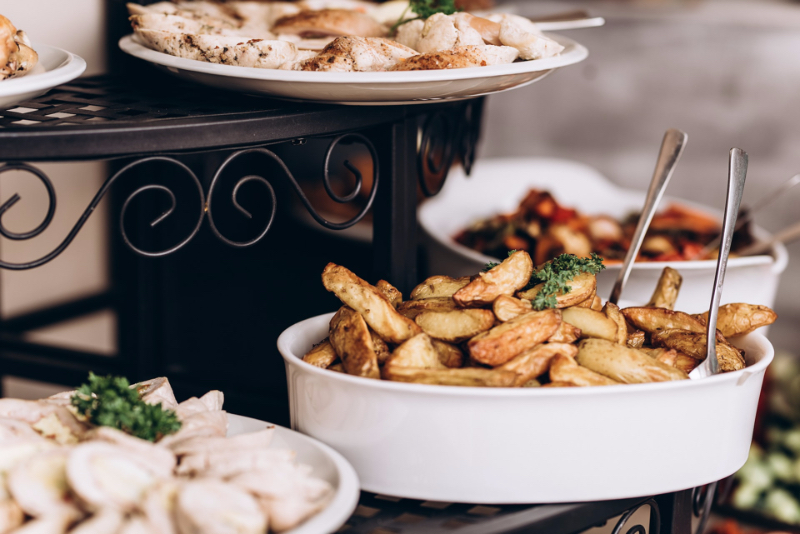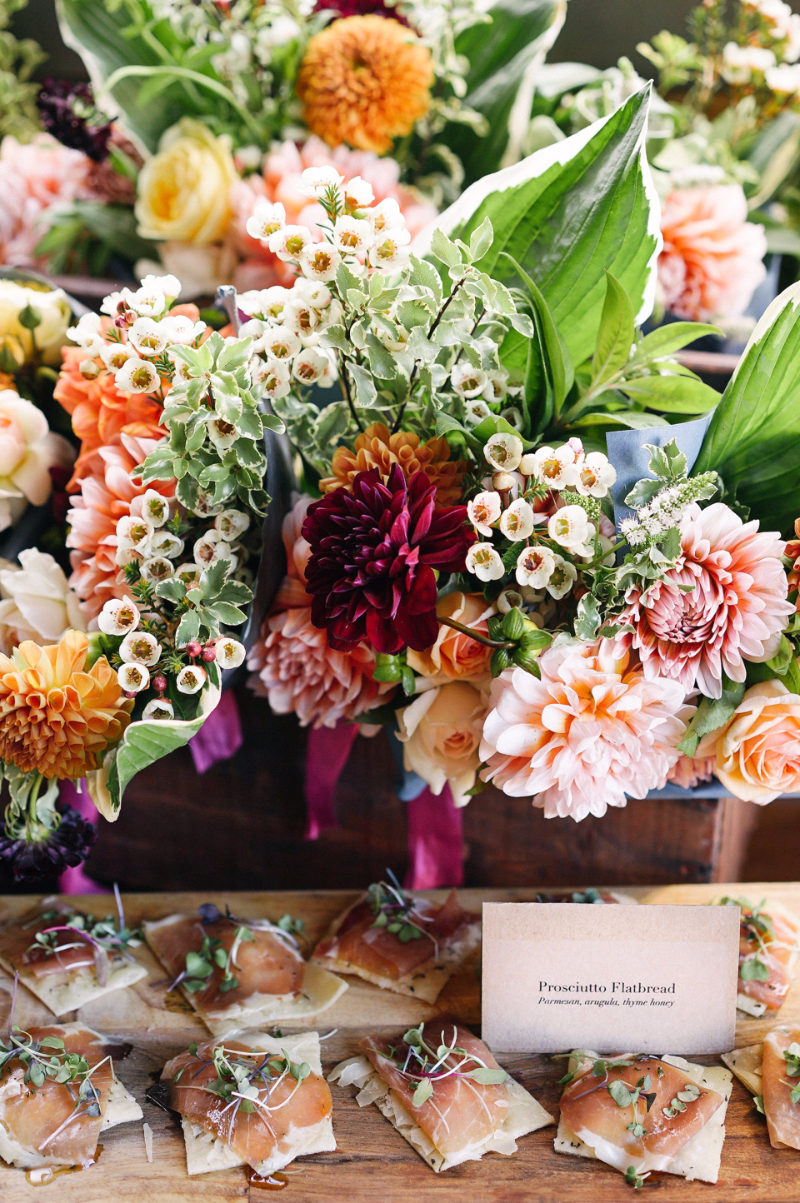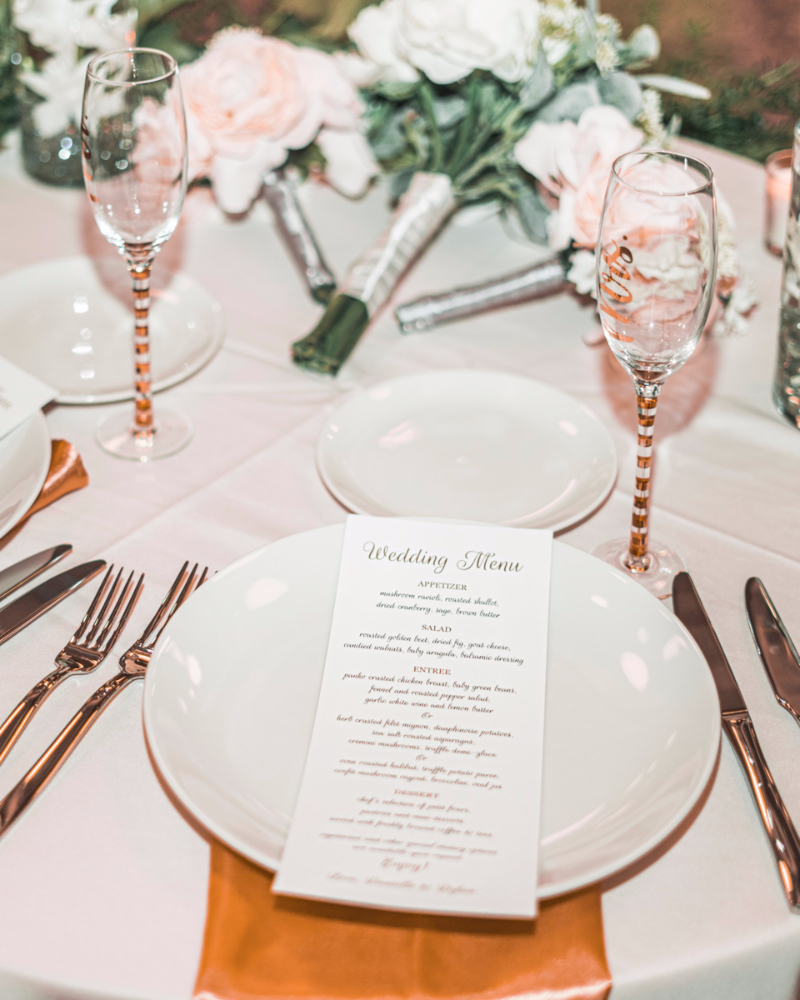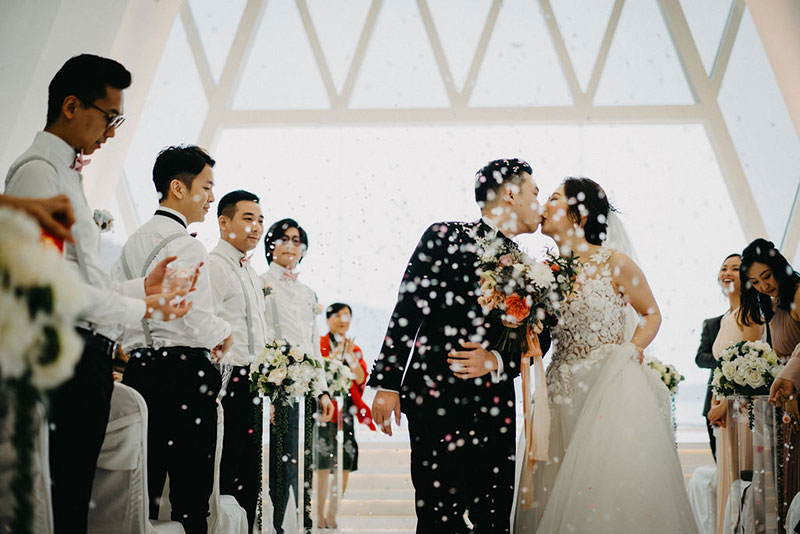We can’t stress enough that guests always remember and appreciate the food at weddings, especially if you make the effort to serve delicious meals. They also take notice when you inject thoughtful details into the dishes and set up a display area that follows the wedding theme. These seemingly minute details do not go unnoticed. On the contrary, they are well remembered even long after the wedding has passed.
What if you have guests or young children coming to the wedding who have food sensitivities, allergies or dietary restrictions? Surely you want them to enjoy your wedding banquet just like everyone else. Here are some wedding catering tips that will help you put together an inclusive wedding menu and dining experience that everyone–including guests and children with food sensitivity–can thoroughly enjoy!
(1) Be inclusive from the very beginning.
From the onset, talk to your caterer and tell them that you want you wedding menu to be as inclusive as possible. This way, the caterer is well aware that they will have to be flexible and make some adjustments from the set menu items that often come with wedding packages.
[Photo by Kelly Jean on Unsplash]
(2) Communicate with your guests.
When you send out your wedding invitations, add a section in the RSVP card where guests can indicate their food sensitivities, allergies, and other dietary restrictions. This is another way to be inclusive and thorough. It will help you plan your menu early better.
[Photo by Victoria Priessnitz on Unsplash]
(3) Eliminate common problematic ingredients.
If you’re already seeing a pattern with the kinds of ingredients or food that guests can’t consumer, you can consider eliminating these altogether instead of customizing dishes per person.
[Photo by CHUTTERSNAP on Unsplash]
(4) Provide options.
Another thing you can do is to provide a variety of options for guests. For example, if you’re serving pasta, you can add a gluten-free option. If you’re serving soup, you can serve both cream-based and clear broth soups in case you have guests who can’t have dairy.
[Photo by David Vilches on Unsplash]
(5) Be extra thoughtful about guests’ condition.
Many people who have dietary restrictions have existing medical issues that are affected by food. You can go the extra mile by learning more about these conditions, whether through research or by talking to the persons concerned. The better your understanding of food sensitivities, the better you can prepare and make thoughtftul adjustments to your wedding menu.
[Photo by Victoria Priessnitz on Unsplash]
(6) Plan in favor of locally-sourced and natural food.
If you want to serve healthier options that cater better to guests with food sensitivities, locally sourced and natural food. Have you heard of the saying, “eat the rainbow”? This refers to eating a lot of fruits and vegetables of all colors–a common practice among those with diet constraints. You can incorporate this practice, too.
[Photo by Sasha • Stories on Unsplash]
(7) Incorporate special food arrangements into the seating arrangement.
It will be easier for your wedding caterer to identify guests with special dietary needs if they’re seated together. You can also work with your caterer if they have ideas on how to group people with similar needs.
[Photo by Freddy G on Unsplash]
(8) Create a detailed menu card.
Finally, it’s important that you keep guests informed about the food items and dishes served at your wedding. Don’t forget to add a menu card to your table setting that details the menu items plus any allergens and sensitive ingredients, i.e. nuts, dairy, gluten, etc. Some guests may be shy to fill declare their food concerns in your RSVP card. This is a quick solution for that plus an inclusive and thoughtful gesture for everyone, not only those with immediate food concerns.







